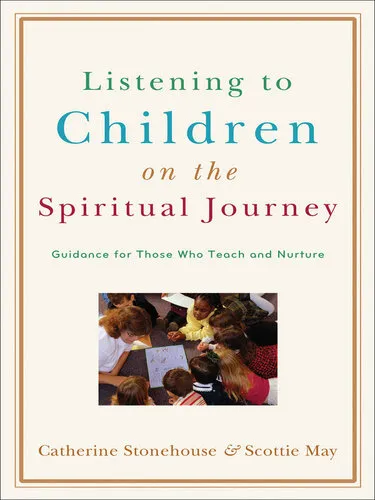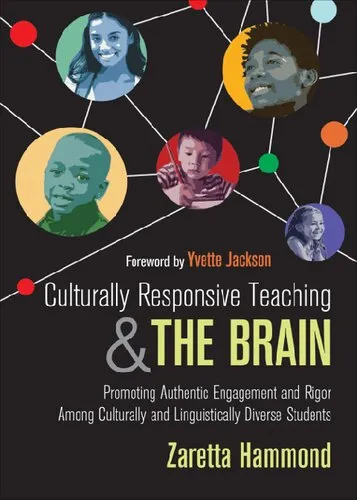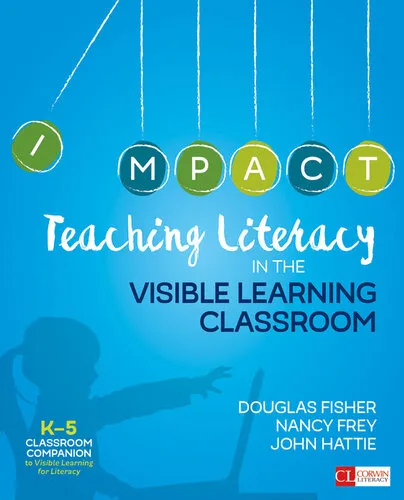Feeling Power: Emotions and Education
4.3
Reviews from our users

You Can Ask your questions from this book's AI after Login
Each download or ask from book AI costs 2 points. To earn more free points, please visit the Points Guide Page and complete some valuable actions.Related Refrences:
Introduction to Feeling Power: Emotions and Education
Feeling Power: Emotions and Education explores the complex intersections of emotions, power, and pedagogy, offering a transformative critique of how emotions are relegated to the margins in educational settings. Written by Megan Boler, the book questions the historical and institutional practices in education that often devalue emotional responses in favor of rational, detached learning processes. Boler challenges readers to recognize how emotions are intricately tied to power structures, influencing not only how individuals learn but also how societal hierarchies are maintained or contested.
This groundbreaking work reimagines the role emotions play in education, examining their integration within practices of critical pedagogy, identity politics, and cultural studies. Boler's work resonates particularly in contemporary classrooms, where issues of equity, inclusion, and representation are at the forefront. At its core, Feeling Power argues that emotions should be acknowledged not as disruptive forces but as central to understanding social dynamics and galvanizing transformative learning experiences.
Detailed Summary of the Book
Feeling Power: Emotions and Education is both a critique and an invitation. It scrutinizes how educational institutions have historically treated emotions as secondary considerations in learning, often reducing them to private, individual experiences that do not belong in "rational" discourse. Drawing from diverse disciplines—including philosophy, feminist theory, cultural studies, and critical pedagogy—Boler situates emotions as deeply political and integral to processes of learning and unlearning.
Divided into chapters that reflect a theoretical and practical interrogation of the topic, the book discusses how emotions such as anger, fear, and empathy are regulated in classrooms, often reinforcing societal inequalities. Boler takes a keen interest in feminist theorists like bell hooks and Audre Lorde, who have long argued for the importance of emotional intelligence as a tool for resistance and change. She also investigates the ways in which emotions are co-opted to sustain oppressive ideologies, all while inviting educators to critically reframe their pedagogical approaches.
By embedding emotional literacy into teaching practices, Boler proposes a vision for education that is not only intellectually stimulating but also deeply connected to issues of justice, equity, and human experience. This makes the book an essential resource for educators, scholars, and activists committed to meaningful, transformative education.
Key Takeaways
- Emotions are not merely individual responses but are shaped by societal norms and power dynamics.
- Detaching emotions from education perpetuates inequalities and power imbalances in society.
- Empathy and emotional literacy are central tools for fostering critical thinking and social change.
- Educators must critically examine their own emotional investments and biases to create inclusive, transformative learning environments.
- Challenging dominant ideologies requires the integration of emotions into pedagogical practices.
Famous Quotes from the Book
"To understand emotions is to situate them within the dynamics of power, privilege, and oppression."
"Feeling power is about recognizing the political weight of our emotions and their capacity to challenge injustice."
"Education is not merely about the mind; it is equally about the heart and the courage to confront discomfort."
Why This Book Matters
Feeling Power: Emotions and Education takes an ambitious and urgent approach to an often-overlooked yet crucial area in education—emotions. While schools and universities frequently emphasize cognitive skills, Boler argues that ignoring the emotional dimensions of learning fosters a superficial understanding of critical societal issues.
This book resonates particularly strongly in an era marked by heightened emotional and political divides, where difficult discussions about race, gender, and privilege demand both rational and emotional engagement. For educators striving to build inclusive classrooms and challenge systemic inequities, Boler’s insights are invaluable.
Ultimately, Feeling Power provides not only theoretical insights but also practical tools for integrating emotional awareness into everyday education. It empowers readers to rethink traditional notions of learning as detached from emotional experiences, instead embracing emotions as vital agents for creativity, empathy, and social transformation.
Free Direct Download
You Can Download this book after Login
Accessing books through legal platforms and public libraries not only supports the rights of authors and publishers but also contributes to the sustainability of reading culture. Before downloading, please take a moment to consider these options.
Find this book on other platforms:
WorldCat helps you find books in libraries worldwide.
See ratings, reviews, and discussions on Goodreads.
Find and buy rare or used books on AbeBooks.
1695
بازدید4.3
امتیاز0
نظر98%
رضایتReviews:
4.3
Based on 0 users review
Questions & Answers
Ask questions about this book or help others by answering
No questions yet. Be the first to ask!
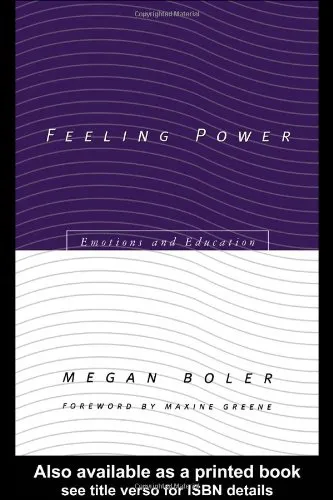

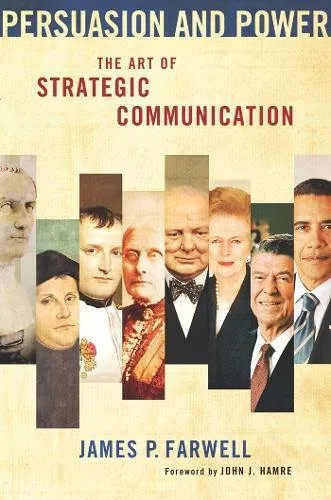

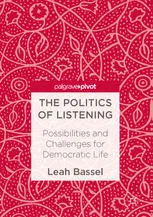
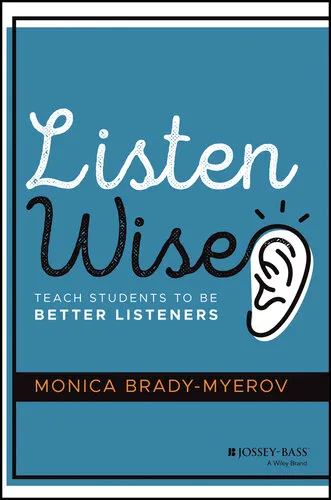
![How to Talk So Kids Will Listen & Listen So Kids Will Talk [THIS IS NOT the BOOK its 2 pages e.g. the cover] not sure how to delete](https://s3.refhub.ir/images/thumb/How_to_Talk_So_Kids_Will_Listen___Listen_So_K_13955.webp)


